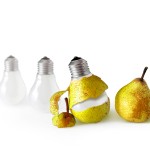Research is a dynamic process that can be organized into four stages: Exploring, Investigating, Processing, and Creating. As you work through a research project, you may move back and forth between these stages as your understanding evolves. This section of the website will provide you with ideas and tools for working through the research process.

Exploring
During phase one of the research process, you will:
- Start exploring ideas
- Choose your topic
- Develop research questions
Things to remember
- Start with what you know about the topic, and use this as a starting point for developing deeper research questions
- Explore many resources and ideas before settling on your topic
- The best place to start your exploration is with factual reference sources, in print and online
- The Virtual Library offers many quality reference sources to start your exploration: See the Elementary Virtual Library page, or the High School Virtual Library page for descriptions of resources.
- Setting up a research portfolio will help you to organize your work
Resources
- Topics and Sub-topics
- Find the Right Source
- Research Starting Points
- Search Strategies
- Developing Research Questions

Investigating
During phase two of the research process, you will:
- Decide on your focus
- Design your research plan
- Select information
- Take notes
Things to remember
- This is the stage where you need to narrow the focus of your research and explore resources and ideas more deeply
- Familiarize yourself with the range of relevant resources available to you in the school library, the Virtual Library, and beyond
- Developing a variety of search strategies will help you find deeper information
Resources

Processing
During phase three of the research process, you will:
- Analyze the information you have found
- Evaluate ideas
- Organize and synthesize your findings
Things to remember
- Taking good notes is essential to good research
- Be accountable for the information you have gathered by keeping track of your sources
- Answering your research questions is key: sort through the information that you’ve gathered and decide what is key
- Your research will have introduced you to multiple perspectives on the issues you are examining: consider these other ideas as you formulate your own
- Critical thinking and analysis is what research is all about: consider what perspective you can add to the issues you are studying
Resources
- Note-Taking
- Note-Taking Checklist
- Note-Taking Templates
- Organizing Ideas
- Academic Honesty / Plagiarism
- Plagiarism
- Are These My Own Words?
- What Must I Cite?
- Quoting and Paraphrasing
- Style Guides

Creating
During phase four of the research process, you will:
- Extend and transfer your learning
- Assemble your culminating product
- Present your findings to a larger audience
- Assess your own product and learning process
Things to remember
- There are many ways to communicate your findings: match your strategy to your purpose and your audience
- Think about how to communicate effectively in your chosen medium: words work well on a page, images work well on a screen
- Knowing your topic thoroughly is the best way to prepare effectively for communicating your findings
Resources
Tags: Research and Inquiry
